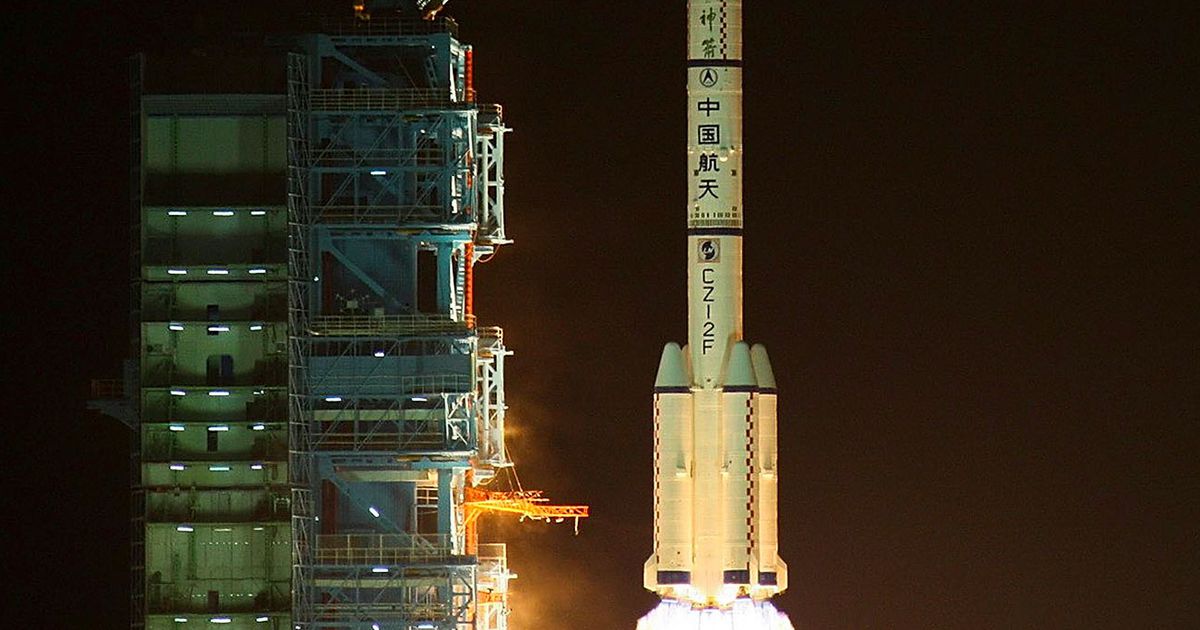China ‘loses control’ of Tiangong-1 space station after suspected technical failure


China’s first space-station module, Tiangong-1, will fall back to Earth in the second half of 2017, senior officials have said.
While “most” of its parts will burn up while re-entering the atmosphere, China said it would monitor stray debris from the spacecraft’s break up and alert international bodies of potential damage on the ground.
China’s broad timeline estimates for Tiangong-1’s re-entry and uncertainty about falling debris adds to speculation over the past months that China has lost communication with the possibly damaged module, and that it is no longer able to control its descent.

Chinese astronauts during a 2013 live broadcast from onboard the Tiangong-1 prototype space station.
Image: AP
Tiangong-1, which translates as “heavenly palace”, was launched in 2011 and was in service for two-and-a-half years longer than its designed lifespan.
Parts of debris coming down may be as heavy as 100kg
Harvard astrophysicist Jonathan McDowell told The Guardian that parts of the falling debris may be as heavy as 100kg or so, “enough to give you a nasty wallop if it hit you.”
He added that the debris wouldn’t do widespread harm but a large piece could seriously damage a property, or if it landed in a crowded city.
“Not knowing when its going to come down translates as not knowing where its going to come down,” said McDowell.
Once Tiangong-2 is operational, it’s possible Tiangong-1 will be dumped in the S Pacific for disposal, if its engines are still working.
Jonathan McDowell (@planet4589) September 15, 2016
Meanwhile, Tiangong-1 remains parked in a 359 x 381 km orbit. It was launched in 2011 and hosted two visiting crews in 2012 and 2013.
Jonathan McDowell (@planet4589) September 15, 2016

Chinese rescue team members in 2013 examine the wreckage of the Long March 2F (CZ-2F) carrier rocket, which fell in Yulin, Shaanxi.
Image: Cai cai/Imaginechina
As Mashable previously reported, space enthusiasts were split between whether the Tiangong-1 was truly out of control or not.
Some have pointed out that the space module appears to be rolling in its orbit and flipping around, uncontrolled.
Other experts have maintainted that the chance of debris hitting something or someone is incredibly low.
Officials made the announcement about Tiangong-1 during last week’s launch of Tiangong-2 into space. Two astronauts are scheduled to head to the new, larger station next month, and will spend a month on board conducting research.
Tiangong-2 will make way for Tiangong-3, the country’s last step before it embarks on establishing a crewed station like the International Space Station.
China has said it hopes to send people to the moon and eventually launch a mission to Mars.

Tiangong-2 blasts off on Sept. 15.
Image: Liu huaiyu/Imaginechina
Read more: http://mashable.com/2016/09/21/tiangong-1-out-of-control/